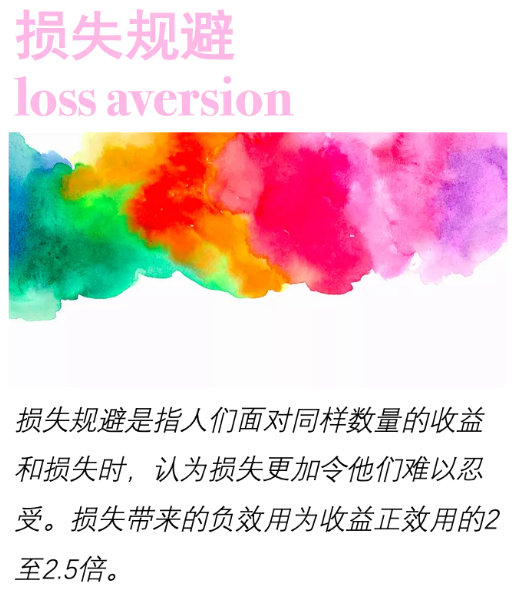
损失规避是指人们面对同样数量的收益和损失时,认为损失更加令他们难以忍受。损失带来的负效用为收益正效用的2至2.5倍。
损失厌恶反映了人们的风险偏好并不是一致的,当涉及的是收益时,人们表现为风险厌恶;当涉及的是损失时,人们则表现为风险寻求。
事实上,与获得同等收益相比,人们更倾向于避免亏损。心理学家称之为“损失规避”,这可以帮助营销人员通过沟通利害关系来构建选择。例如,显示冰川如何消融的照片可以成为有效地说明气候变化带来的环境损失。怀特和同事莱昂诺·麦克唐纳、达伦·达尔发现,在居民进行回收时,强调损失的消息(“如果我们不回收,想想我们的社区会失去什么”)最好能与该行动的相关细节结合,比如何时放好回收车,什么材料可回收,等等。因为重视损失的人希望有具体方法来解决问题。
Indeed, people’s tendency to prefer avoiding losses over making equivalent gains—what psychologists call loss aversion—can help marketers frame choices by communicating what’s at stake. For instance, photos showing how glaciers have receded can be a powerful means of conveying environmental losses associated with climate change. White and her colleagues Rhiannon MacDonnell and Darren Dahl found that in the context of residential recycling, a loss-framed message (“Think about what will be lost in our community if we don’t keep recycling”) works best when it’s combined with specific details about the behavior, such as when to put out the recycling cart, what materials are recyclable, and so forth. That’s because people in a loss-framed mindset tend to want concrete ways to deal with a problem.
以上文字选自《哈佛商业评论》中文版2019年10月刊《掘金绿色经济》
凯瑟琳·怀特(Katherine White) 大卫·哈迪斯蒂(David J. Hardisty)李夏德·哈比比(Rishad Habib)丨文
马冰仑 丨编辑




